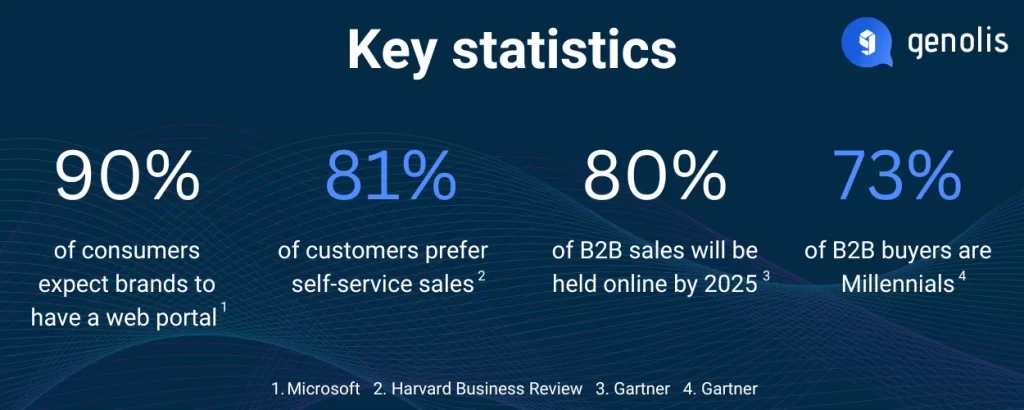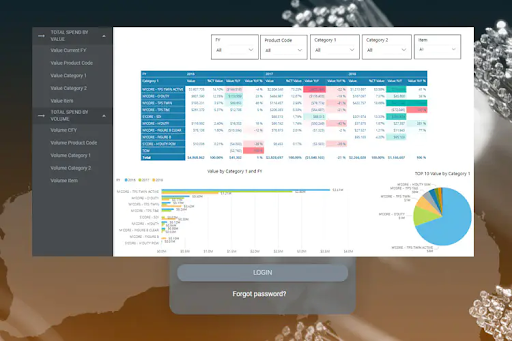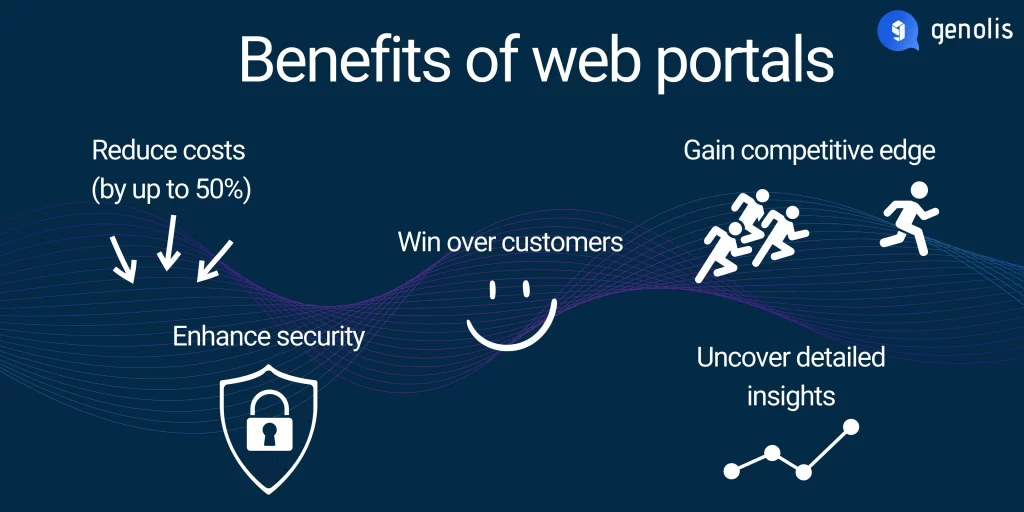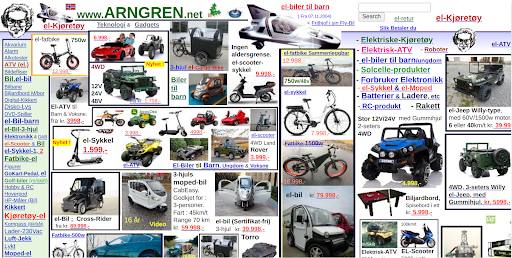
As a new generation of B2B buyers demand fast, personalised, and self-service commerce, custom web portals have become crucial for helping businesses stay ahead of the competition.
B2B commerce is evolving. By 2025, Gartner predicts that 80% of B2B sales will be held online. This charge is being led by Millennials, which make up 73% of the B2B market right now, followed swiftly behind by Gen Z.
These are all customers who demand fast, easy, and personalised sales experiences that allow them to browse, buy, track, compare, and review products and services independently from home.
It’s no wonder that 90% of B2B buyers now expect organisations to have a web portal.

What is a B2B web portal?
A B2B web portal is a secure, interactive platform that serves as a central hub for customers, partners, and suppliers to interact with an organisation. By aggregating and organising multiple sources of information, these portals allow users to access real-time sales data, browse and compare products, track orders and invoices, and manage real-time messaging and file-sharing tools, all in one place.
Users typically log into a web portal account with a URL, username, and password to access their unique purchase history, preferences, settings, and more. In this way, web portals offer customers a far more personalised and dynamic sales experience than static corporate websites.

Why are custom web portals important?
The days of doing B2B sales in person, via email and phone, or through typical website support channels are ending. 81% of customers now prefer to make purchases and resolve issues independently, according to the Harvard Business Review.
Enter B2B portals. As Millennials and Gen Z buyers tip the scales towards online commerce – especially post-pandemic – they crave higher levels of control and customisation. They have little tolerance for friction in the buying process (60% of customers will cancel a purchase if the host website is too slow) and they’re likely not window shopping anymore. Most B2B buyers have a clear idea of what they want and what they can afford.
These demands are good news for businesses. It means that by investing in a custom web portal, you can provide the real-time, personalised, and self-service B2B experiences that customers expect, right across the entire sales lifecycle, with no need for multiple tools, platforms, or third-party services.

The benefits of custom web portals
1.Reduce costs by up to 50%
Web portals are great long-term investments. They can help you:
- Reduce dependence on customer support teams
- Automate tedious manual transaction and invoicing processes
- Conduct faster and more efficient site audits
- Reduce the chance of human error
- Reveal ways to optimise your strategy through data and analytics
- Advertise and recommend products to customers
- And more
These features not only save money on staffing but also mean you don’t need to invest in multiple applications, services, or promotional tools to support your B2B sales. Web portals seamlessly integrate with your business systems, applications, and third-party services (including CRM systems, ERP solutions, messaging tools, file sharing services, and even AI implementations), letting you manage your operations from a single platform. In many cases, this helps companies save up to 50% on the cost of customer support services.
2. Win over customers
B2B buyers today – many of whom grew up with the internet – are critical digital consumers. They’re accustomed to unique, high-quality applications and interfaces with responsive designs and full accessibility across different mobile devices, browsers, and operating systems. This is why traditional contact-based B2B sales and generic, corporate websites don’t cut it anymore.
Web portals, on the other hand, are often designed to include the latest digital features. They’re user-friendly and easy to navigate, and can be integrated with various user devices and business systems. This means they can streamline the entire B2B journey and empower users to find information, resolve issues, and purchase products or services on their own, wherever they are. Crucially, web portals also continuously aggregate data to offer personalised workflows and recommendations, boost engagement, and make customers feel appreciated. This makes web portals invaluable tools for both attracting new customers and gaining their loyalty.

By removing the need for round-the-clock support services, web portals also allow customer service teams to concentrate on delivering personalised assistance, emergency response, and after-sales services. This focused support strengthens relationships with customers, distributors, and partners, builds trust, and encourages repeat business.
3. Uncover detailed data and analytics
Web portals allow businesses to continuously collect and aggregate vast quantities of data. With features such as data visualisation tools and dashboards, web portals can reveal detailed information about your customers’ interests, shopping behaviours, and pain points. Metrics such as page views, session times, click-through and conversion rates, traffic sources can all be measured and tailored to your business needs via a web portal. At the same time, this data can help you track your performance, identify roadblocks, and make data-driven decisions about how to improve your strategy.
Web portal data also benefits users, providing them with real-time updates on their order and delivery statuses, purchase histories, messages, and more. This gives buyers the independence and control that they’ve come to expect with B2B sales experiences today.
4. Enhance security
When your business is dealing with clients that are using different devices and endpoints around the world, it’s essential to monitor incoming traffic and protect yourself and your customers from bad actors. Cyberattacks can have devastating legal, financial, and reputational consequences. However, if you’re juggling multiple access points, applications, and support options, it’s easy to get overwhelmed by the scale and complexity of it all. This makes it easier for attackers to exploit your blindspots and breach your systems, and increases the likelihood of non-compliance with key security regulations.
The centralised structure of web portals greatly improves security. As a single source of truth, your portal monitors and controls all interactions, reducing the risk that attackers find a way to break in. Web portals also offer tailored access controls for different user classes, strengthened by end-to-end encryption, and strong authentication controls (such as multi-factor authentication) to ensure that only legitimate users can access your data and applications.
5. Gain a competitive edge
By incorporating the benefits listed above, portals can help you meet modern customer demands for seamless, personalised buying experiences, putting you leagues ahead of competitors still relying on traditional B2B sales methods.
B2B portals transcend time zones and geographic boundaries, allowing you to reach new customers worldwide, even while you’re asleep. By offering tailored user interfaces and personalised content suggestions, these portals not only attract new customers but also help retain existing ones.
What’s more, your web portal is an extension of your product and your business, as well as a mirror of your brand identity. This means you can essentially advertise products and services for free. As the B2B landscape evolves and customers move towards digital, self-service commerce, investing in a reliable custom web portal has become crucial for staying competitive.
We’ll help you build a web portal
Did you know? Companies with excellent online portals can reduce customer service costs by up to 50%.
Interested to hear how your business could benefit from a web portal?
Click here to book a free consultation with our team.
About Us
With multiple completed portal projects under our belt, we know the dos and don’ts of designing and building portals that deliver value to customers. We specialise in creating tailored portals with enhanced customisation possibilities, higher levels of user-friendliness, and lower costs that serve as powerful marketing and sales tools for their owners.